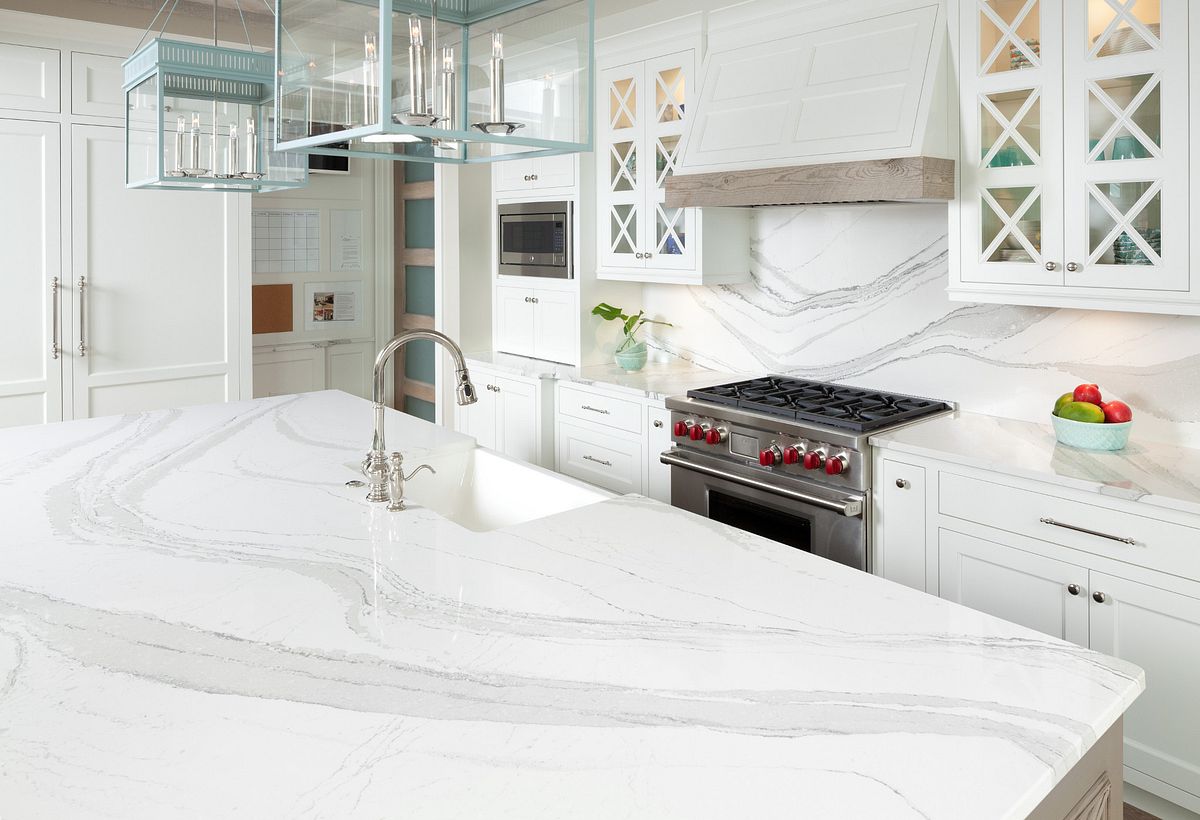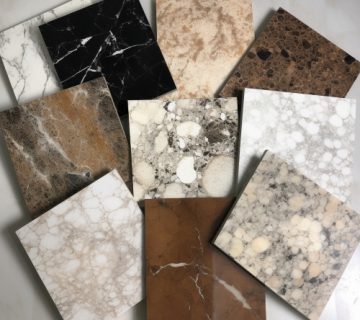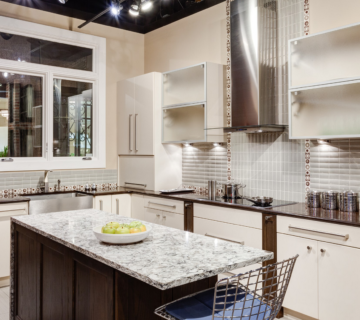People ask us all the time “What’s better, Granite or Quartz?”. The answer really depends on your lifestyle, what you’re looking for, and how you use your kitchen. Let’s explore some of the differences and I’ll let you decide for yourself.
Beauty
I have to start with beauty because both Granite & Quartz have a lot of aesthetic value. Nothing gives your kitchen the Wow Factor quite like a stunning piece of stone. Whether it’s the countertops or backsplash, the right granite or quartz can turn your kitchen into a masterpiece. Granite has long been the gold standard when it comes to Beauty. The colors and patterns are as endless as mother nature’s imagination. Taken right out of nature, each granite slab is beautifully unique.

In recent years we’ve seen many advancements to the designs in Quartz slabs. Manufacturer’s like Cambria & Vicostone have developed beautiful new designs that rival the most luxurious granite out there. The manufacturing process allows more control than granite, so the master designers craft quartz colors and patterns like an artist with a canvas.

I give Quartz & Granite both 10 out of 10 on beauty. No matter your design, we can find a quartz or Granite slab that pairs perfectly.
Durability
Quartz and Granite are both very durable compared to other countertop options such as corian, stainless steel or marble. Quartz and granite will outlast their competitors by a long shot, but there are some subtle differences between the two.
Both are very chip and scratch resistant, but can be damaged with enough force. Chips can usually be repaired successfully on either surface. Scientists measure hardness of a material with something called the Mohs scale. The Mohs scale compares hardness on a scale of 1 to 10 with diamonds being a 10. Quartz comes in at a 7 (very hard). Granite varies by color from a 5-7. So, generally quartz is a little bit stronger than granite, but granite is also very hard. Granite is usually composed of a number of different stone types, so some spots in your granite will be harder than others.
Another thing to consider is the porosity of each material. Granite, being natural is a porous material. Granite should be sealed by the installer when it’s originally installed, but we recommend re-sealing your granite tops every 1-2 years depending on the type of granite. When sealed properly granite is very stain resistant, but most sealers are susceptible to acids found in limes, tomatoes, wine and more. Granite requires some ongoing maintenance and some care and precaution to keep it stain free.
Quartz is 100% non-porous. Due to the manufacturing process the slabs are so dense that liquids cannot permeate the surface. Quartz does not require sealing and most manufacturers offer a warranty against staining.
I give quartz a 10 out of 10 on durability. Granite gets a 9 out of 10.
Warranty
Most quartz manufacturer’s offer a 10 or 15 year warranty. Cambria offers a lifetime warranty. Granite, however, typically does not come with a product warranty. Some of the sealers used on the granite may have a warranty associated with them, but the stone itself does not. Ask your fabricator for more details about the sealer they use.
At Select Surfaces we also guarantee our installations for life. We want you to have the peace of mind that in the rare event something were to go wrong, we’re here to take care of it for you.
Quartz scores 9 out of 10 on Warranty
Granite gets a 1 out of 10.
We love granite and quartz both for their beauty and durability. We’ve found over the years that homeowners that use their kitchens for gatherings, or that do a lot of cooking and food prep in their kitchens, are happier with quartz due to it’s low maintenance qualities, ease of cleaning, and lengthy warranty.
Contact us today for help choosing the right stone for your kitchen!
www.selectsurfaces.net
support@selectsurfaces.net
847.260.5940




Excellent article! We aree linking to this particularly great article on our website.
Keep up the great writing.
Here is my blog: Тунис семейни ваканции